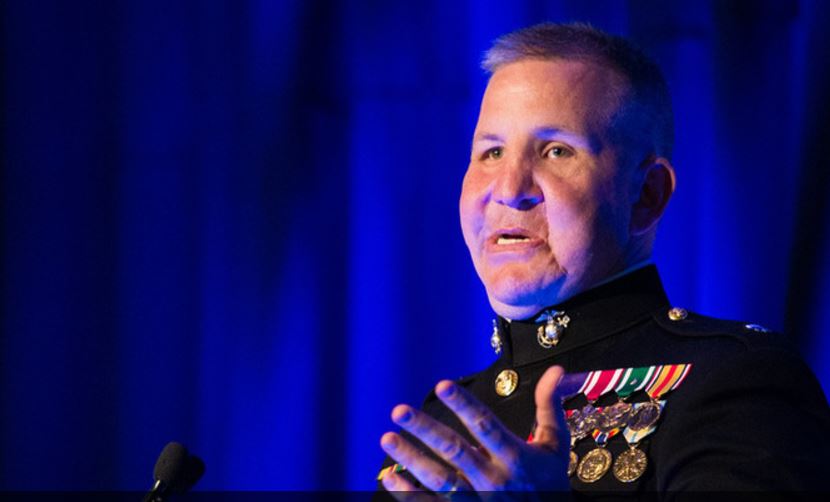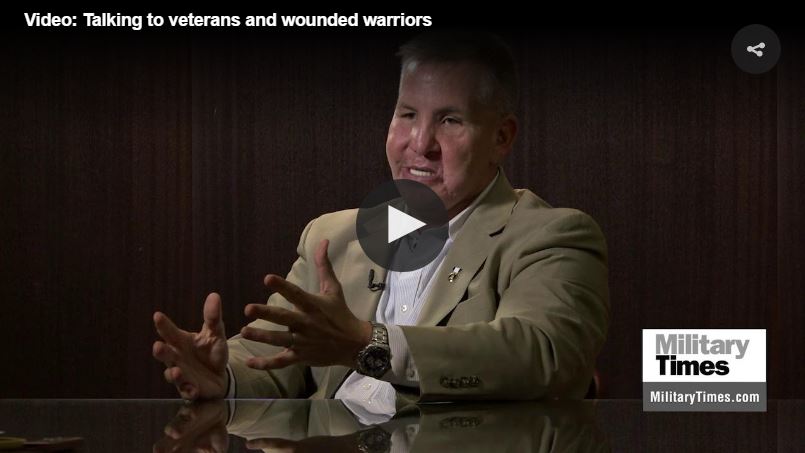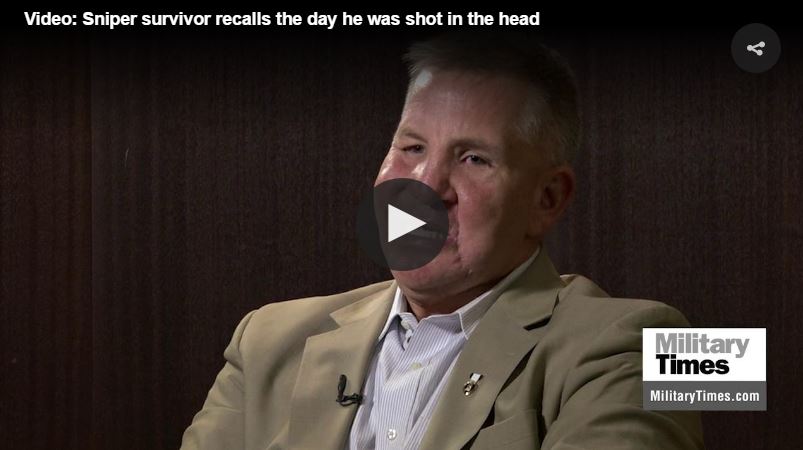By: Lt. Col. Justin Constantine
It doesn’t take long for Americans to turn a mental health condition into a punchline.
 If we keep our desks too neat, we joke that we have obsessive-compulsive disorder. If we space out during a meeting, we lament that we have attention deficit disorder. And, increasingly, if we had a bad experience somewhere, we joke that it gave us post-traumatic stress disorder.
If we keep our desks too neat, we joke that we have obsessive-compulsive disorder. If we space out during a meeting, we lament that we have attention deficit disorder. And, increasingly, if we had a bad experience somewhere, we joke that it gave us post-traumatic stress disorder.
It happened when liberal filmmaker Michael Moore said that Hillary Clinton has “maybe a little PTSD” from past Republican investigations. And last summer, when Demi Lovato joked that she got PTSD from her time at the Disney Channel.
It’s generous to describe these as jokes, since they aren’t that funny. But regardless of what you call them, they show that many of us still have a lot to understand about how post-traumatic stress disorder works and who it affects.
In fact, following the example of many military groups, I will simply refer to it as post-traumatic stress, because “dropping the D” — as President George W. Bush suggested — may help reduce the stigma around it, and highlights that normal, healthy responses to a traumatic situation should not be referred to as a disorder.
 The first myth is that post-traumatic stress is somehow crippling. Researchers from the Center for New American Security interviewed executives of 69 leading corporations. They all said that hiring veterans can be good for business, but a majority of the companies identified post-traumatic stress as one of the risks in doing so.
The first myth is that post-traumatic stress is somehow crippling. Researchers from the Center for New American Security interviewed executives of 69 leading corporations. They all said that hiring veterans can be good for business, but a majority of the companies identified post-traumatic stress as one of the risks in doing so.
Further, a study by the Society for Human Resource Management found that 42 percent of companies that had hired veterans in the preceding 36 months considered PTSD and other mental health issues to be an impediment to hiring veterans.
I’m lucky that I’ve been trained on post-traumatic stress, and feel comfortable openly discussing it, thanks to a wonderful counseling program run by the nonprofit organization Give an Hour that I participated in after I suffered a catastrophic injury while serving in the Marines in Iraq.
My post-traumatic stress symptoms were similar to those experienced by many other veterans: hypervigilance, nightmares, and an aversion to crowds, fireworks and loud noises. My doctor was able to explain to me why my mind was behaving this way, and over time I understood that these were actually very normal reactions to my trauma.
Despite this diagnosis of post-traumatic stress, I was promoted in the military, passed a full-polygraph law enforcement background examination, completed the Marine Corps Command and Staff College as the Honor Graduate of my class, graduated on the Dean’s List from the Georgetown University Law Center with an advanced law degree in Security Studies and started several businesses and a nonprofit organization.
And I am just one of the hundreds of thousands of other veterans who have successfully moved forward in life despite a diagnosis of post-traumatic stress, many of whom are helping others in our community through various peer mentoring programs and call centers.
The second myth is that post-traumatic stress is unique to veterans. In large part due to media stories and particular story lines in movies and television shows, many people automatically associate post-traumatic stress with veterans, and invariably as broken shells of their former selves.
This happens even though approximately 7 percent to 8 percent of Americans will have post-traumatic stress at some point in their lives (roughly 26 million people), and about 8 million adults have post-traumatic stress during a given year.
These cases are caused by car accidents, rape and violent assault, natural disasters, even growing up in very challenging communities. Compare these numbers to the approximate 20 percent, or 500,000, of veterans returning from the wars in Iraq and Afghanistan who have post-traumatic stress, and it is clear that our veterans are just a microcosm of everyday society.

The third myth is that post-traumatic stress and other mental health issues are dangerous and scary. Post-traumatic stress is absolutely not synonymous with uncontrollable rage and violent workplace behavior.
The irony, of course, is that we like to joke about having mental illnesses as a way of distancing ourselves from them. But the reality is these conditions are much more common than many of us seem willing to acknowledge.
Whether you know it or not, you are most likely already used to working with, socializing with or collaborating with somebody with post-traumatic stress, regardless of whether he or she is a veteran.
Across our society as a whole, we have a significant problem discussing mental health issues, and many are embarrassed to even approach the topic. This is especially true in our military.
However, frank, honest discussions about mental health will not only educate all of us, but will encourage so many of us to feel comfortable talking about it and seeking help that’s both needed and deserved.
Post-traumatic stress and other behavioral health issues are not laughing matters, but conditions we need to embrace, understand and “normalize.”
Retired Marine Lt. Col. Justin Constantine is an inspirational speaker, leadership consultant, entrepreneur and TED lecturer. He is the author of the new book “My Battlefield, Your Office: Leadership Lessons from the Front Lines.” He’s online at www.justinconstantine.com.
